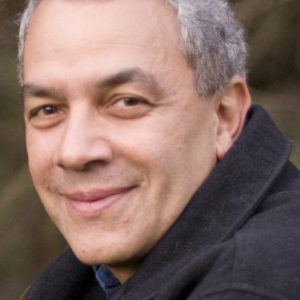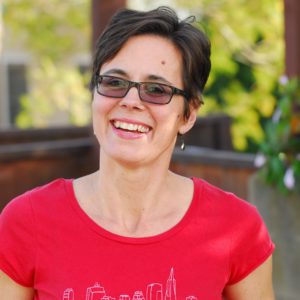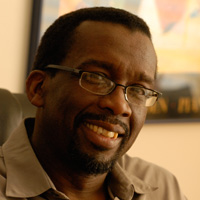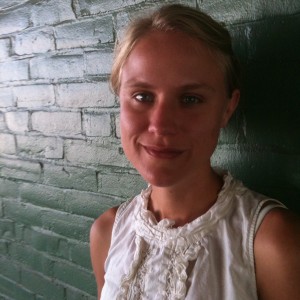
Gaining Ground Synopsis

Gaining Ground Synopsis
In the midst of the economic meltdown, Gaining Ground explores the innovative, grassroots organizing efforts of the Dudley Street Neighborhood Initiative (DSNI) in Boston. DSNI was created 25 years ago when the community had been devastated by bank redlining, arson-for-profit and illegal dumping, and has become one of the preeminent models for community-based change. Over the course of two years, we watch a new generation of leaders working to prevent foreclosures and bring jobs and opportunities for young people to one of the city’s most diverse and economically challenged neighborhoods.

Dudley Street
Neighborhood Initiative

Dudley Street
Neighborhood Initiative
The Dudley Street Neighborhood Initiative’s (DSNI) mission is to empower Dudley residents to organize, plan for, create and control a vibrant, diverse and high-quality neighborhood in collaboration with community partners.

Holding Ground Productions

Holding Ground Productions
Mark Lipman and Leah Mahan created Holding Ground Productions in 1990 when they started making Holding Ground, their first film about the Dudley Street Neighborhood Initiative. They had met while working on Eyes on the Prize, Henry Hampton’s acclaimed series about the history of the civil rights movement, and were deeply inspired by the transformation happening in the Dudley neighborhood.
Holding Ground aired on public television in 1997 and became a widely used resource in the community development field and in college classrooms. The film made its way to unexpected places like Siberia, where it was translated into Russian and used to educate citizens in 22 cities about the potential of a newly established nonprofit sector to make change.
Ten years after the release of Holding Ground, Mark and Leah were drawn back to the Dudley neighborhood after learning that none of the 225 homes DSNI had built was in foreclosure at a time when the mortgage crisis was devastating communities across America. They also learned that several of the teen volunteers in Holding Ground had gone on to become leaders in DSNI and were running the organization.
Leah and Mark had both moved to the West Coast, so they invited Llewellyn Smith and Vital Pictures to produce and direct Gaining Ground. Llew had a long history in Roxbury, where he grew up, and had been a consulting producer on Holding Ground, and he was well prepared to explore this new chapter in the Dudley Street story.
The filmmakers are grateful to the Dudley Street community for sharing their story and are honored to bear witness to more than two decades of DSNI’s work to improve the lives of community residents.

Mark Lipman
Holding Ground Producer/Director
Gaining Ground Executive Producer

Mark Lipman
Holding Ground Producer/DirectorGaining Ground Executive Producer
Mark Lipman has worked as a documentary filmmaker for thirty years, exploring a wide range of subjects from domestic violence to human sexuality to affordable housing and community organizing. His films have been broadcast nationally on public television and won numerous awards. His producing credits include To Have and To Hold (1981), the first documentary to look at domestic violence through the experiences of men; Holding Ground: The Rebirth of Dudley Street (1996), a film about the Dudley Street Neighborhood Initiative’s successful efforts to revitalize a Boston neighborhood devastated by redlining, arson and illegal dumping; Father’s Day (2003), an experimental documentary about the death of Mark’s father; and Gaining Ground (2012), a sequel to Holding Ground that explores DSNI’s success in preventing foreclosures and fostering youth leadership.
Mark has produced media for non-profit organizations throughout New England including the Isabella Stewart Gardner Museum where he documented the creation of new artwork by internationally renowned artists-in-residence. As a freelance editor, he has worked for the NOVA series at WGBH/Boston and for many other Boston-area companies. After moving to San Francisco in 2004 and forming Open Studio Productions with Helen Cohen, Mark edited Alaska Far Away, a feature documentary about a controversial New Deal program that relocated 200 destitute farm families into the wilds of Alaska. He has taught editing and production classes to young people and adults in Massachusetts, Maine, Indiana and California.
Since 1981Mark has been an active member of New Day Films, a national cooperative of social issue filmmakers who collaborate in the distribution of their films, serving several times as its chief financial officer and a member of its steering committee.
Mark holds a BA in psychology from Harvard University and an MFA in film and video from the Massachusetts College of Art.

Leah Mahan
Holding Ground Producer/Director
Gaining Ground Executive Producer

Leah Mahan
Holding Ground Producer/DirectorGaining Ground Executive Producer
Leah Mahan is an independent documentary filmmaker whose work has been nominated by the Directors Guild of America for Outstanding Directorial Achievement. She has been a fellow at the Sundance Institute Documentary Editing and Story Lab and the Producers Institute for New Media Technologies.
Leah’s film SWEET OLD SONG (2002) was featured on the PBS series P.O.V. and was chosen by film critic Roger Ebert for his Overlooked Film Festival. The film tells the story of Howard “Louie Bluie” Armstrong, an old-time string band musician who undertakes a bittersweet journey with the woman he loves.
Leah is currently making COME HELL OR HIGH WATER: The Battle for Turkey Creek, about a group of determined Mississippians who struggle to save their endangered Gulf Coast community in the face of rampant development, industrial pollution and disaster. She worked with Gulf Coast NGOs to develop a related community journalism project titled BRIDGE THE GULF, which was presented at the 2011 Media That Matters conference and has drawn the attention of MSNBC, the BBC and The Daily Show with John Stewart.
Leah began her career as a research assistant for filmmaker Henry Hampton on the groundbreaking PBS series on the civil rights movement EYES ON THE PRIZE. Her work has been supported by the Sundance Institute Documentary Fund, Independent Television Service, Ford Foundation, W.K. Kellogg Foundation, Chicken and Egg Pictures and the Fledgling Fund. She holds a BA in anthropology from Cornell University and an MFA in Cinema from San Francisco State University. She lives in the Bay Area with her husband and their two children.

Llew Smith
Holding Ground Consulting Producer
Gaining Ground Producer/Director

Llew Smith
Holding Ground Consulting ProducerGaining Ground Producer/Director
Peabody and Dupont award winner Llewellyn Smith is President and founder of Vital Pictures, inc. (www.vitalpix.com), a Boston-based documentary company dedicated to exploring social justice issues. He is co-executive producer for the PBS seriesUnnatural Causes: Is Inequality Making Us Sick?” (2008)—a look at the surprising impact social and economic conditions have in determining our health and longevity. Unnatural Causes won the Council On Foundations Henry Hampton Award, as well as the 2009 Alfred I. duPont Columbia Award, the top broadcast journalism prize in the United States, and the National Academies of Sciences 2009 Communications Award for best science documentary. As a writer/producer, Llew Smith has contributed to such PBS series as Eyes On The Prize: America’s Civil Rights Years and the critically acclaimed PBS history series American Experience, where as Series Editor he played a key role in origination, development and acquisition of more than 70 programs on American history. Mr. Smith was Project Director for the Peabody and Emmy award-winning series Africans In America: America’s Journey Through Slavery (1997), and directed the final film in the series Judgment Day. Mr. Smith’s film Jubilee Singers: Sacrifice and Glory (May, 2001) tells how former slaves from Fisk University preserved slave spirituals in concert performances and shared them with the world in years following the Civil War. The film was produced for American Experience. For the 3-hour PBS series RACE: The Power Of An Illusion (2003), Smith produced the program The House We Live In. Smith was a producer /director for the 3-hour special Reconstruction: The Second Civil War (2004), winner of the Eric Barnouw award for best history documentary. He was also producer/director for the 2-hour NOVA biography of Dr. Percy Julian, the pioneering industrial chemist and civil rights activist, Forgotten Genius (broadcast on February 2007). Forgotten Genius was recently honored for broadcast excellence by the American Association for the Advancement of Science (AAAS), won the National Science Writers Award, and was nominated for a Writers Guild award. Most recently Llew Smith was director-producer for the Vital Pictures documentary HERSKOVITS AT THE HEART OF BLACKNESS, which premiered in February 2nd 2010 on the PBS series Independent Lens.

Kelly Thomson
Gaining Ground,
Co-Producer/Co-Editor

Kelly Thomson
Gaining Ground,Co-Producer/Co-Editor
Kelly Thomson joined Vital Pictures in 2006 for their award-winning series Unnatural Causes and has been with them ever since. She’s spent her spare time over the past several years directing/producing a feature documentary, Savage Memory, which premiered at Boston’s Museum of Fine Arts in October, 2011 and will begin showing at festivals in April 2012. In addition to the Vital Pictures’ productions Herskovits At the Heart of Blackness and most recently Gaining Ground, Kelly has contributed to independent films and shorts, including Untamed, Hotels 4, All Falls Down, Milk, A Vote for Choice and Funeral of the Last Gypsy King. Kelly is a Boston native, and graduated from New York University.
Llewellyn Smith, Director’s Statement
Llewellyn Smith, Director’s Statement
Gaining Ground: Building Community on Dudley Street
I grew up in Boston and spent a lot of my early school days in the Dudley area— summer vacation, bible school, church was there. So was our only neighborhood library and my favorite theater, the Strand, where we watched great cowboy movies. Consulting on Holding Ground 25 years ago opened up for me the story of a vibrant neighborhood that dared to build on and stand for the vision of it’s future that residents had dreamed. Gaining Ground gave me my first chance to not only produce a film about Boston but tell a story that reached deeper into this special, unique neighborhood that had such a memorable impact on my early life. Most revealing for me was how the life-long commitment of DSNI organizers and community residents across generations was demonstrated again and again— so difficult to capture on film because this kind of work is almost invisible, especially when it’s working. But we certainly tried.